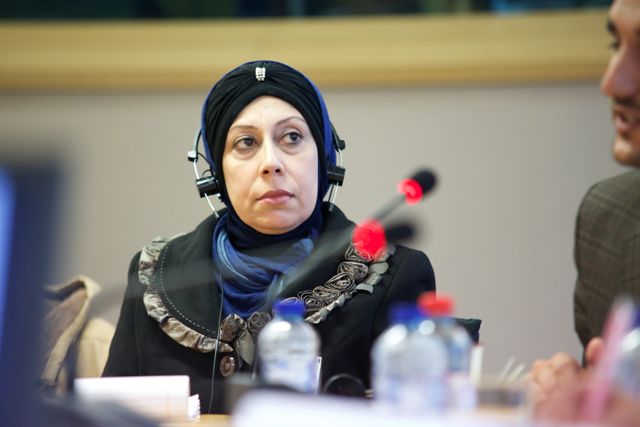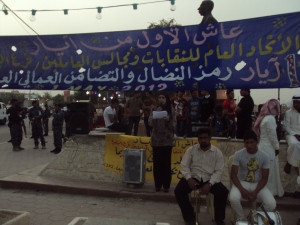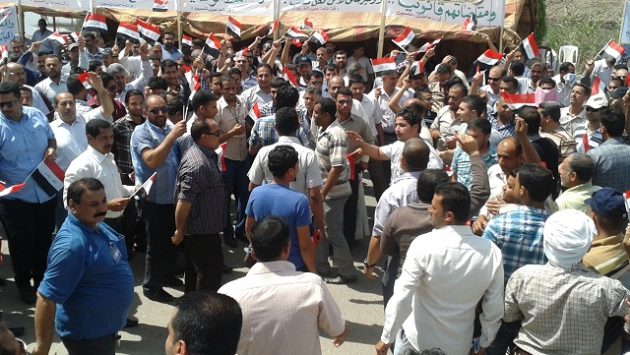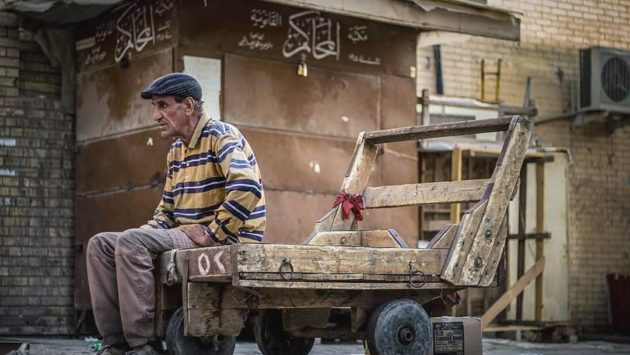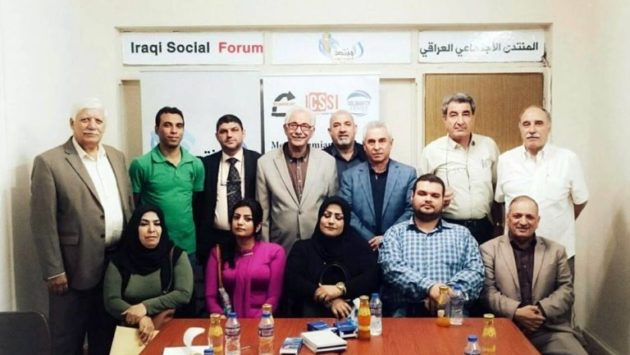Women Trade Unionists and Working Women in Iraq Today!
Unionists: Ilham AbdulMaaboud Majeed
President of the Communications Syndicate
Member of the Executive Office of the General Federation of Trade Unions working in Iraq / Basra branch
Paper Prepared for ICSSI Conference in Oslo – Norway
October 2014
The situation of Iraqi women in general
Iraqi women suffer dramatic injustice and persecution, both in society and within their own families. Much of the discrimination they face arises out of restrictions imposed on women derived from the authority of longstanding traditional and cultural practices. Women are generally deprived of their basic rights: their freedom is almost always linked to the men of their families rather than to their own independent and autonomous choices. At work, women don’t find equivalent opportunities to those of men. There are very few women who occupy important administrative positions, in private and public sectors alike. In addition to restrictions on the kinds of job women may access, they are limited in what they can choose to wear, and often face face harassment in daily life on the job. All this puts women far down on the social hierarchy. Only a few women social activists enjoy genuine freedom, and who have the ability to cope with the risks women face in and outside the home.

Women Trade Unionists in the Workplace
The conditions for women in the workplace differ from one sector to another. One finds that women in the private sector generally enjoy more freedom (for instance, to express an opinion or to claim rights) than in the public sector. A woman in the private sector is able to get her demands heard, and this is due to the fact that unions are recognized in the private sector. Formally recognized unions open up lines of communication and allow for collaboration with managers.
Formally recognized unions, however, are not permitted in the public sector, and this has significant consequences for women. Often they are constrained in their work and have virtually no freedom to express their needs or claim their rights. For example, in one institution where we’ve formed a women’s trade union committee, we found that women were unable to participate in this committee. Union membership was opened and some women and nominated themselves to work in the trade unions, but after a period of time, managers started to create problems for women members and ultimately, they were forced to leave the union. When we work with or hold workshops at these institutions, only few women attend meetings — when asked why they do not come, they respond that their managers do not allow them to, and further, that their participation might cause them to lose their jobs.
Women trade union movements are almost non-existent in Iraq today. There are only a few trade unions or associations with women active in their ranks. Where syndicates and trade unions (especially unions in the public sector) have attempted to form committees composed of women in various sectors, they often face harassment that impedes or prevents their work. This in turn impacts the overall activities of women in trade unions, and violates the rights of working women.
Iraqi trade unions in general face extremely difficult work conditions. On the one hand, unions still work individually — there is no platform of coordination among the various trade unions. A number of attempts to join efforts have been made, for example, establishing a single office for coordination, but these small attempts were not entirely successful. On the other hand, individual unions suffer under the pressure of the old governmental laws, which prevent the existence of trade unions in the public sector. These laws, inherited from the Saddam regime, are still applied today and state that there are no ‘workers’ in the pubic sector, only ‘employees’ (and only the former are entitled to form unions). As about 75% of the workforce in Iraq is made up of such ‘employees’, the task of trade unions is very difficult, for they are unable to address the rights and demands of workers in many sectors.
Until this moment, no new labor law has yet been issued, and the law that has been submitted to the parliament hasn’t yet been voted upon. The labor law that is still in force (law 39 of 1971) restricts trade union actions in general. Additionally, in its second article, it restricts union work in the private sector and prevents the right to free assembly and demonstration without the approval of security officials. This dramatically narrows the scope of movement for trade unions, and limits the kind of activities worker’s unions might undertake.
Women in trade unions call upon the new Iraqi government:
- to issue a labor law and a freedom of association law that is compatible with international standards, in collaboration with the Bureau of Solidarity Center and the Iraqi trade unions.
- to allow unions and unionists to work freely immediately.
- to activate the currently inactive unions in the services sector, and to provide them with needed support.
- to open wider areas of work for women and to remove limitations on their capacity to work in certain fields.
- not to exclude women from decision-making positions, and to develop a plan to promote gender equality in the workplace.
Women in trade unions call upon the international community:
- to press the Iraqi government and parliament to demand the issuance of special labor laws for the working class.
- to organize awareness campaigns and to educate the working class with help from International labor organizations who can support the trade union movement in Iraq.
- to press the Iraqi government and parliament to allow workers in the public sector to assemble, to establish unions, and to work freely.

